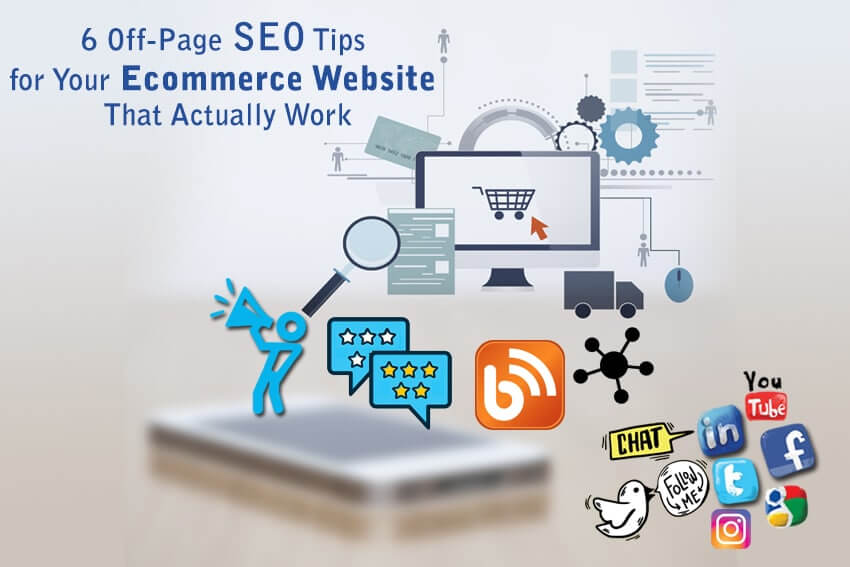The eCommerce industry is a growing industry. It has seeped into almost all aspect of business relationships and it does not seem to show any sign of stopping. In fact, a study has shown that e-commerce sales in the US from 2010 to 2013 grew from $167.3 billion to $263.3 billion. And like most topics, it has its own philosophies, contrasting ideas, and numerous branches. One such branch, in the form of search engine optimization, deals with increasing a business’ visibility on the incredibly enormous stage of the internet. E-commerce SEO could be a topic all on its own because it encompasses such a wide scope. Around the world, there are very few mid-ranges to big companies that do not use SEO in some capacity. To some, it seems almost incomprehensible to imagine attaining success with their eCommerce without the help of SEO. So for those that have not tried this service and are considering, here are a few tried and tested SEO tips that could potentially help your business grow.
1. Do Your Research
This first step seems pretty obvious, but it needs to be said. If you have no clue about eCommerce SEO in the first place or have limited knowledge about the topic, it is best to acquaint yourself with its meaning and common terms before jumping head first and hiring a marketing agency. It is easy enough to demand to an SEO agency to help you grow your business, but a far more efficient and constructive way would be to lay out a detailed plan with concrete and attainable set of goals for both parties to work together to achieve. So being well-informed before meeting the professionals would save you time and money and facilitate a more conducive working relationship.
Part of the research involves selecting the right keywords for your e-commerce. The keyword is crucial and without it, you will have not trajectory towards your intended success. Doing keyword research doesn’t take a lot out of you. All you need to do is list down all the pages on your website then using a world map, find and map relevant keywords for each page.
2. Front and Center
If it is not already obvious what this means, the main aim of SEO agency is to make the company’s website, and other online platforms, easily searchable especially in popular search engines like Google and Yahoo. One way this is done is by optimizing the traffic of the site, making sure that it is using the correct keywords and phrases that are commonly used to look for the specific products and services that they offer. The site should also be properly indexed, so it shows up on search results.
Optimizing your site also means getting it properly indexed. While most people think indexing is a passive activity, they’re wrong. A properly indexed site could offer a huge boost of traffic into the pages. Google, being the largest search engine that it is, uses some powerful tools and programs to index the trillions of pages online. The sooner your site gets indexed, the sooner you can climb the ranking ladder. The two widely used tools for a comprehensive site indexing are Google Search Console and Yoast SEO.
3. Consider Blogging
Just like the internet, blogging, too, exploded onto the scene in recent decades. The earlier iteration of the medium was mostly centered on the meandering thoughts of individuals, but it has ever since transitioned into something else entirely. Now, people use blogging as a way to offer further information, almost like a news article. Blogging has also made its mark in the marketing world. In an article published in eWebscapes, blogging puts relevant content into a site, something that many search engines favor highly. Blogging could also be an important method to dive deeper into a topic that quite broad.
Blogging is putting content into your site, and not just any content, relevant content. This action has two results. One, your site is put on higher priority when it comes to indexing. It’s no secret that Google favors sites when high-quality content and crawls those pages first and regularly. Two, it serves as a window for viewers to see a different side of you outside of the business model. With blogs, you are able to showcase a strong narrative and personal opinions that give more value to your products and services.
4. Go Mobile
There is no denying that the next leap forward when it comes to technology and communication is going to be centered on mobile. As more and more people migrate from using home computers and laptops towards hand-held devices like phones and tablets, many businesses are also restructuring their marketing strategies to accommodate mobile users. Mobile optimization involves making sure that the website is mobile friendly that it can easily transition from desktop view into mobile view easily. This can help keep potential customers on the site longer.
When you decide to adapt your site to be optimized for mobile, you’ll have to decide whether you’ll want to use it a responsive, dynamic, or a separate site. A responsive site doesn’t need another URL and has consolidated authority but it requires heavy redesign and has a lack of mobile-specific content. Dynamic serving also has consolidated authority but it could be difficult to implement and quite expensive to maintain. A separate or parallel URL is easy to implement and able to use mobile-specific content but there is a risk of content duplication as well as it splits the authority of the site.
5. Test, Test, Test
Before even launching your e-commerce site, it is of utmost cruciality that everything is working perfectly and as planned. Every link should lead to the desired page, every image should be optimized for both desktop and mobile viewing, even the font size, font style, and grammar of the content should be double, triple, checked. Important keywords and phrases should also be tested, making sure that when used in a search engine, it brings up the site in the result. There are many A/B testing tools that can be used for testing. Some, if not all, could help improve conversions for the website.
6. Don’t Forget Social Media
A juggernaut in the SEO industry that people are only now slowly taking seriously is social media. People easily dismiss social media as a platform for people to rant and share their unwarranted opinions, but people forget that the number of social media users has climbed steadily in recent years; they tend to look over the fact that social media users have more engagement than other mediums. As controversial as they are, the so-called social media influencers & follower have bitten a good chunk of the SEO market, and they’re doing quite well on their own. A wise marketing agency will take into consideration every possible way to help grow the business.
Many studies such as SearchMetrics’ Rank Correlation for 2013 has added weight to the notion that search engines like Google look to social media cues when ranking a site. Relevant links that are tweeted and retweeted, shared and posted are all factors that come into play when ranking a site. Social media profiles also play a significant role in SEO. More often than not, those profiles are shown first in a search result leading many to capitalize on this trend to boost their own traffic.




